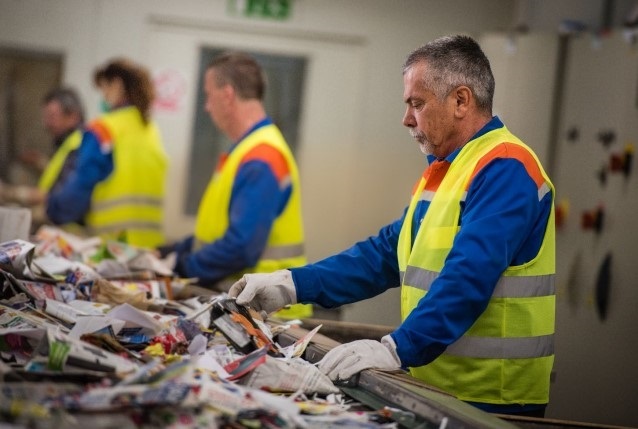Otago getting its garbage act together
Jill Herron
12 April 2022, 6:30 PM
 Willing workers…tiger worms dispose of food waste without the need for carbon-rich feedstocks. Image Jill Herron/Central Wormworx
Willing workers…tiger worms dispose of food waste without the need for carbon-rich feedstocks. Image Jill Herron/Central WormworxA move to investigate how the whole of Otago could work together to better solve the region’s ever- more-costly rubbish woes has been initiated.
The Central App recently reported Central Otago’s own garbage budget blow-out caused by the climbing cost of carbon credits. It cost the area over $100,000 and disposal of food and other organic waste was a key factor in that equation.
This material has been confirmed, in a new report by the Otago Mayoral Forum, as the emerging problem child of the waste family, region-wide.
The group this week released what is the first report of its kind on waste and recycling issues across the whole region. They also recently approved the preparation of an ‘outline business case’ for a more formal partnership between the councils of Otago to manage waste and deliver waste infrastructure.
The Forum is comprised of Otago’s five Mayors and the Chair of the Otago Regional Council, with their Chief Executives.
Forum chairperson, Central Otago mayor Tim Cadogan, says the report provides a region-wide viewpoint that paves the way to a more coordinated approach to managing waste across Otago.

Workers sort paper and plastic at a recycling facility. Image: Otago Mayoral Forum
“Thinking regionally to address waste makes a lot of sense. Traditionally, Otago’s five district and city councils have managed their waste and recycling responsibilities better.”
While good work was being done in some quarters, the organic waste issue was a worry. “This is not just about councils and organisations. I was concerned to read, just as one example, that an estimated 55% of kerbside rubbish going to Otago’s landfills is organic material and most of this is food waste. We all need to do better,” he said.
Organic material created the predominant waste stream to emerge from the analysis in terms of both current tonnage to disposal and as a focus for action, the report stated.
“Kerbside food waste is the largest single source of organic waste to landfill. The most problematic organic wastes are putrescible materials with a high moisture content.
These are likely to lend themselves to processing technologies, such as anaerobic digestion or vermicomposting, that do not require large quantities of carbon-rich feedstocks or
‘bulking agents’ to work.”
The Forum partnered with environmental consultancy Eunomia to produce the analysis, which documents waste and recycling infrastructure, volumes and activity throughout Otago.
The second phase of the project, later this year, will see the Forum work with Eunomia to draw on the analysis and explore how councils can work together on waste management, with an initial focus on organic waste, and construction and demolition waste.




